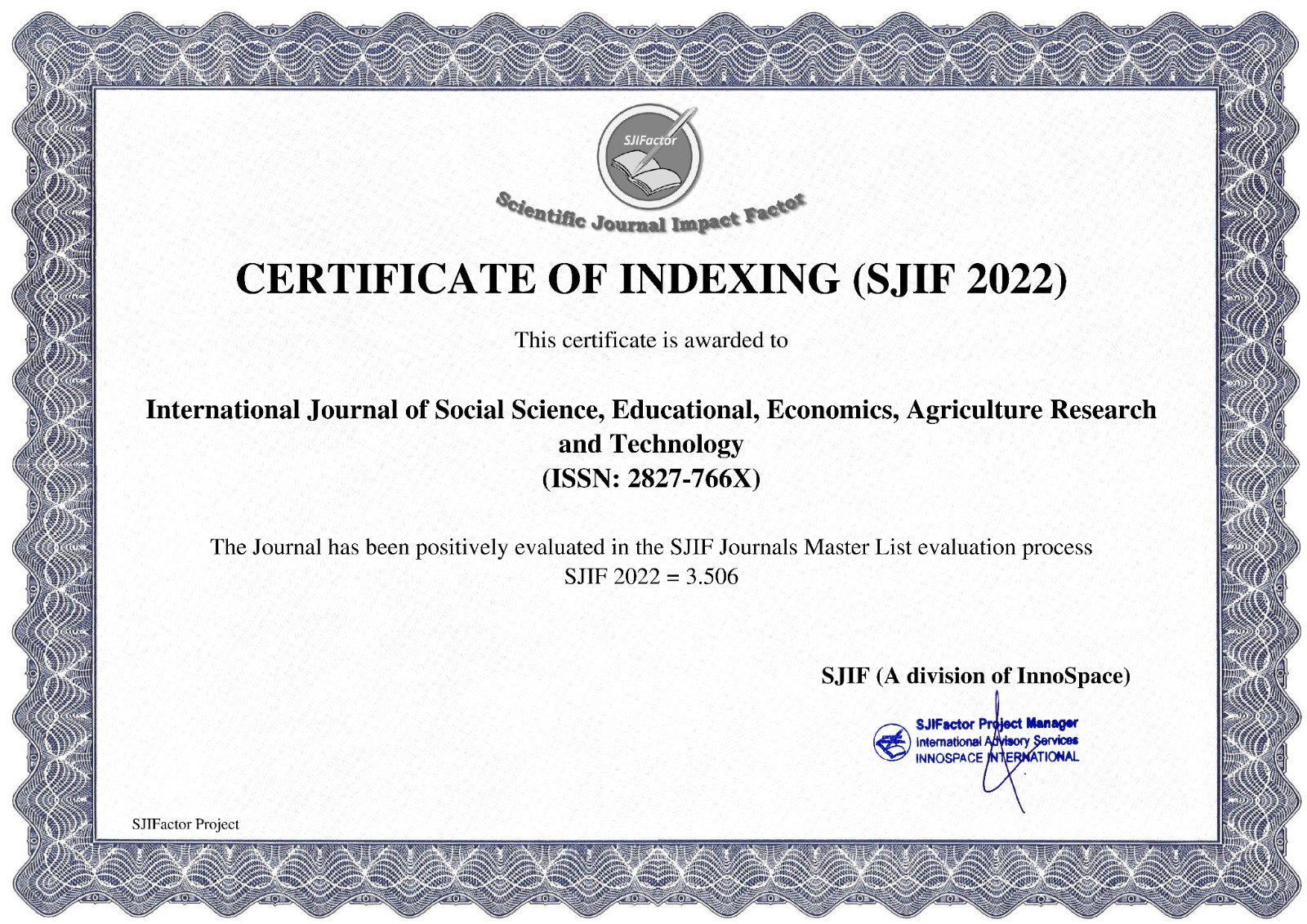THE IMPACT OF ELECTRICITY, CO₂ EMISSIONS, AND FOSSIL ENERGY ON INDONESIA'S ECONOMIC GROWTH
Main Article Content
Nazla Salsabila
Jariah Abubakar
This study aims to analyze Electrical Energy, CO2 Emissions and Fossil Energy on Economic Growth in Indonesia. This study uses secondary data from 1980-2023 obtained from the Central Statistics Agency. The data analysis method is the Autoregressive Distributed Lag. The results of the study show that in the short term, electrical energy shows a significant negative effect on economic growth. While CO2 emissions and fossil energy show a significant positive effect on economic growth. In the long term, electrical energy, CO2 emissions and fossil energy do not show a significant effect on economic growth.
A’nnisa, L., Sasana, H., & Septiani, Y. (2020). Analysis of Fossil Energy Consumption, CO2 Emission, Renewable Energy Consumption and Economic Growth on Indonesian Health Expenditure for The Period 2000-2017. Dinamic : Directory Journal of Economic, 2(2), 431–445.
Afriyanti, Y., Sasana, H., Jalunggono, G., Ekonomi, F., & Tidar, U. (2020). Analisis Faktor-Faktor Yang Mempengaruhi Konsumsi Energi Terbarukan Di Indonesia Analysis. DINAMIC: Directory Journal of Economic Volume 2 Nomor 3, 2(3).
Boediono. (2014). Ekonomi Makro. BPFE.
Christiani, N. V., & Nainupu, A. E. (2021). Pengaruh Akses Terhadap Internet , Listrik dan PDRB Per Kapita Terhadap Tingkat Kemiskinan di Nusa Tenggara Timur Tahun Penyedia Data Statistik Berkualitas untuk Indonesia Maju Pengaruh Akses Terhadap Internet , Listrik Dan PDRB Per Kapita Terhadap. Jstar, 1(1), 37–52.
Faudzi, M., & Asmara, G. D. (2023). Analisis Neraca Perdagangan Indonesia: Pendekatan ARDL. Journal of Macroeconomics and Social Development, 1(1), 1–16. https://doi.org/10.47134/jmsd.v1i1.17
Joo, Y. J., Kim, C. S., & Yoo, S. H. (2015). Energy consumption, Co2 emission, and economic growth: Evidence from Chile. International Journal of Green Energy, 12(5), 543–550. https://doi.org/10.1080/15435075.2013.834822
Li, J., Irfan, M., Samad, S., Ali, B., Zhang, Y., Badulescu, D., & Badulescu, A. (2023). The Relationship between Energy Consumption, CO2 Emissions, Economic Growth, and Health Indicators. International Journal of Environmental Research and Public Health, 20(3). https://doi.org/10.3390/ijerph20032325
Mukhtarov, S., Aliyev, F., Aliyev, J., & Ajayi, R. (2023). Renewable Energy Consumption and Carbon Emissions: Evidence from an Oil-Rich Economy. Sustainability (Switzerland), 15(1), 1–12. https://doi.org/10.3390/su15010134
Munir, Q., Lean, H. H., & Smyth, R. (2020). CO2 emissions, energy consumption and economic growth in the ASEAN-5 countries: A cross-sectional dependence approach. Energy Economics, 85, 104571. https://doi.org/10.1016/j.eneco.2019.104571
Rosmeli. (2018). Dampak Infrastruktur Terhadap Ketimpangan Pembangunan Antar Daerah di Provinsi Jambi. World Development, 1(1), 1–15. http://www.fao.org/3/I8739EN/i8739en.pdf%0Ahttp://dx.doi.org/10.1016/j.adolescence.2017.01.003%0Ahttp://dx.doi.org/10.1016/j.childyouth.2011.10.007%0Ahttps://www.tandfonline.com/doi/full/10.1080/23288604.2016.1224023%0Ahttp://pjx.sagepub.com/lookup/doi/10
Siti Afifatul Farichah. (2022). Analisis Inflasi di Indonesia: Pendekatan Autoregressive Distributed Lag (Ardl). Journal of Economic Perspectives, 2(1), 1–4.
Sukirno, S. (2021). Makroe EKonomi. KEncana. Jakarta
Zuldareva, F. (2023). Analisis Pengaruh Konsumsi Energi dan Emisi Co2 Terhadap Pertumbuhan Ekonomi Di Indonesia Tahun 1980-2014. 8(1).






















